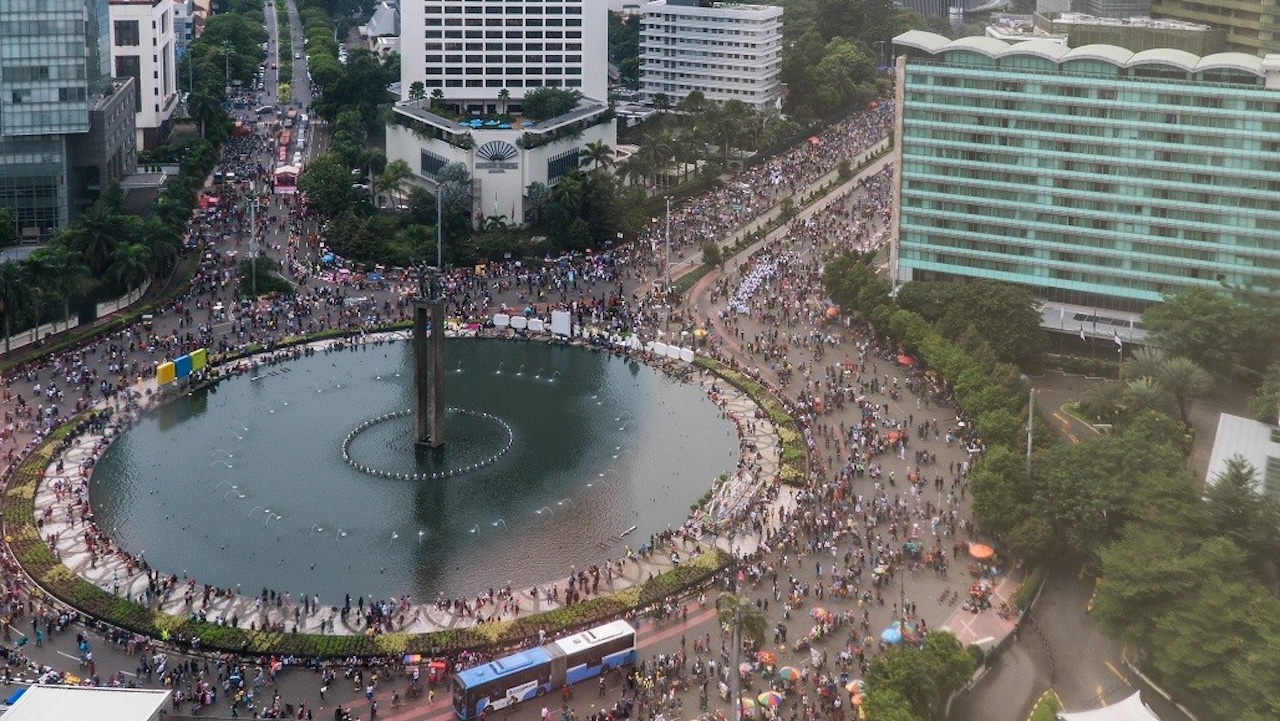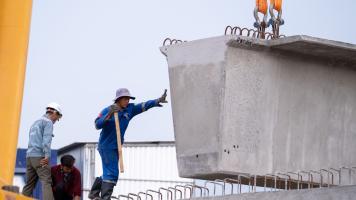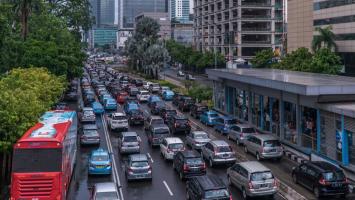
Residents of Jakarta enjoy their city without the usual traffic congestion during the annual car-free day. Photo credit: ADB.
Value capture financing taps into increases in property values, among other benefits, resulting from infrastructure investments.
Cities draw people and businesses with the promise of better opportunities. Without good urban planning and management, however, cities tend to deteriorate if investments in necessary infrastructure, such as mass transport systems, housing, and sanitation, cannot keep up with an increasing population. This is a problem faced by fast-growing cities in Indonesia and other emerging economies in Asia.
A report from the Asian Development Bank (ADB) looks at an innovative financing tool that can help cities in Indonesia build quality infrastructure to support their growth.
Land value capture, or value capture financing, taps into increases in property values, among other benefits, resulting from public investments in infrastructure and other measures. For example, higher revenues from property taxes give the city government more funds to spend to further improve public infrastructure and services, which makes the city a more efficient and attractive location for private investors and workers.
The report was prepared by ADB at the request of the Coordinating Ministry for Economic Affairs (CMEA) to support the Government of Indonesia in building a land value capture framework that ensures the maximization of the social, economic, and environmental value of infrastructure investments.
Creating a virtuous cycle
Value capture financing is based on the theory that investment in quality infrastructure attracts private capital and fuels growth. This creates a virtuous circle of increasing public revenue to pay for improved facilities and services and to promote other value creation activities.
“Infrastructure financing based on value capture provides a new way forward that triggers a virtuous value cycle of value creation and value funding to guarantee repayment and reinvestment of capital, thereby enabling further infrastructure development,” the report says.
“With the COVID-19 pandemic constraining the availability of public finances—the main source of funding for infrastructure—exploiting the full potential of tools such as value capture financing has therefore become even more urgent. Cities in emerging economies, such as Jakarta, Makassar, and Palembang in Indonesia, have much to gain from implementing this concept, especially in these unprecedented times,” it adds.
A framework for value creation and capture
An analysis of the country’s existing regulatory and taxation frameworks shows that substantial value capture policies and regulations are in place, but some components are missing to realize its full potential.
A key challenge is the low level of taxation in Indonesia compared with other countries in the region. One way to address this is to make the taxation system more efficient. In the capital Jakarta, for example, property tax revenues may be increased by keeping registered property values up to date with real market values.
In Makassar, the highest tax revenues come from the tax on private vehicle ownership and income tax, but these do not directly go to the city budget but flow into the national and provincial budgets.
The ADB report provides a road map that takes a progressive whole-of- government and policy framework-based approach to capture more value from these revenue channels. In the short term, it identifies the following actions:
- select the policy institution for land value capture,
- prepare a national legal framework,
- select the lead implementing institution, and
- select specific pilot project(s).
The medium-term action plan involves
- making regulatory changes in the national tax framework,
- amending laws and regulations on landownership,
- implementing the national legal framework on land value capture, and
- implementing economic development corridor projects.

BIMP-EAGA
The Brunei Darussalam–Indonesia–Malaysia–Philippines East ASEAN Growth Area, or BIMP-EAGA, is a cooperation initiative established in 1994 to spur development in remote and less developed areas in the four participating Southeast Asian countries.


